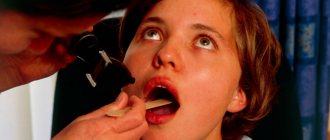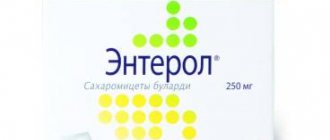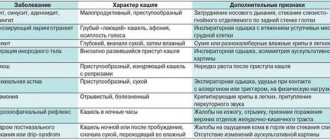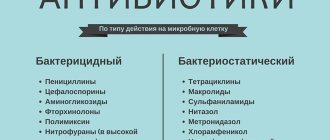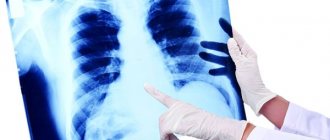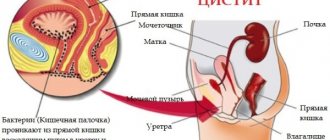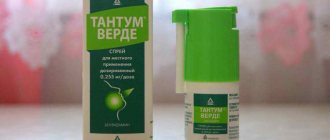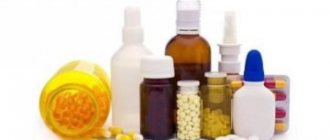How quickly the body copes with the disease depends on the correctly chosen drug for the treatment of sore throat. To exclude the occurrence of complications on the heart, kidneys, and joints, it is necessary to purchase only high-quality and effective medications from reputable manufacturers. In this article you will learn the rating of the best remedies for sore throat, which will help you choose the medicine that is right for you.
Antibiotics for sore throat
Up to 70% of tonsillitis cases are caused by viruses. Among them, the most common are coronavirus and rhinoviruses. The remaining 30% comes from bacteria, fungi and other microorganisms. Up to 80% of cases of sore throats caused by bacteria are caused by group A β-hemolytic streptococci (Streptococcus pyogenes, GABHS).
To timely prescribe an antibiotic for angina, it is necessary to identify antigens to GABHS using the Streptatest system.
Streptatest is a universal tool that allows you to determine the cause of a sore throat in 5 minutes. It will quickly establish the presence of group A β-hemolytic streptococcus in the oral cavity, which means it will help to promptly prescribe adequate antimicrobial therapy. In the absence of a pathogen, streptatest will allow you to avoid unnecessary treatment of sore throat with antibiotics. Streptatest has high (about 90%) specificity and high (about 95%) sensitivity.
Rice. 1. Streptatest has high (about 90%) specificity and high (about 95%) sensitivity.
Rice. 2. Streptatest is a universal tool that allows you to quickly determine the cause of a sore throat.
Rice. 3. Scheme of working with streptatetest.
Antibiotics for sore throat. Correct selection
Streptococci show high sensitivity to drugs of the penicillin group. In cases where drug intolerance is noted or pathogen strains exhibit resistance (resistance), macrolides and first or second generation cephalosporins are prescribed.
Treatment of sore throat is carried out with antibiotics of the following groups:
Penicillin group drugs:
- phenoxymethylpenicillin
- augmentin, amoxiclav
- amoxicillin
Macrolides:
- Sumamed
- Azithromycin
Cephalosporins:
- Cefatoxime
- Cefuroxime
Phenoxymethylpenicillin is convenient to use in the treatment of young children due to the release of this antibiotic in the form of a suspension.
Amoxicillin has increased bioavailability (the ability to accumulate in damaged tissues). The drug binds to serum proteins to a much lesser extent.
First generation cephalosporins are highly effective antibiotics and are well tolerated by patients.
Antibacterial drugs of the macrolide group have high antistreptococcal activity. They create a high concentration in the affected area.
Properly selected antibiotics for angina will quickly achieve the desired result, prevent the development of complications and avoid chronicity of the process.
Rice. 4. The photo shows a drug from the penicillin group, Amoxicillin, and a drug from the macrolide group, Azithromycin.
Antibiotics for sore throat. To apply or not?
In adults and children, antibiotics may not be used at the first signs of disease.
They are indicated only in case of bacterial nature of the infection. Developed by specialists, the MacIsaac scale helps to differentiate between viral and BSGA tonsillitis. Clinical scale for express diagnosis of BSGA tonsillitis and pharyngitis
| Criterion | Grade |
| Body temperature more than 38°C | 1 |
| No cough | 1 |
| Cervical lymph nodes are enlarged and painful | 1 |
| Tonsils are swollen | 1 |
| Age | |
| 3-14 years | 1 |
| 15-44 years | 0 |
| 45 years or more | -1 |
- If the scale scores no more than 1 point, then antibiotics for sore throat are not indicated. Treatment of angina is symptomatic. No additional diagnostic methods are required.
- If the scale scores 2, then the question of prescribing an antibiotic is decided by the doctor.
- If the scale scores more than 3 points, then treatment of sore throat with systemic antibiotics is indicated.
Antibiotics for sore throat. Duration of treatment
With properly selected antibacterial therapy, the patient's condition improves quickly. But the doctor’s task is not only to quickly recover the patient, but also to prevent the development of complications. This is achieved by completely destroying the pathogen, which occurs when antibiotics are used for at least 10 days.
BSGA tonsillitis and immunity
BSGA tonsillitis does not leave behind lasting immunity. During the recovery period, the likelihood of the disease returning is high.
Unjustified use of antibiotics
The unjustified use of antibiotics for angina leads to the development of pathogen resistance and the occurrence of undesirable reactions. Pain is often the reason for prescribing antibiotics. However, the pain of sore throat is well relieved by topical medications with anesthetics.
In Russia, about 70% of antibiotic prescriptions turn out to be unjustified. About 25% is justified, but their use is not always successful.
Antibiotics do not work on viruses. For viral tonsillitis, you can limit yourself to prescribing local medications.
How to treat a sore throat in an adult
At the first symptoms of acute tonsillitis or follicular tonsillitis (high temperature, chills, sore throat), you should immediately consult a specialist for advice. Timely treatment prescribed by the doctor helps alleviate the patient’s condition, prevents serious complications and speeds up the recovery process. After examination and tests, the doctor determines the stage and type of the disease and, based on this, prescribes medications to the patient. In the absence of complications, treatment of sore throat in adults is carried out at home. For this you need:
- isolate the patient from other family members;
- maintain bed rest;
- drink a lot and eat well;
- use traditional medicine (chamomile, sage, calendula);
- comply with all treatment procedures prescribed by the doctor;
- take medications: antipyretics, antiviral drugs and antibiotics, according to the prescription.
Antibiotics for sore throat in adults in tablets
To avoid negative consequences, any medications must be taken as prescribed by a specialist, who also prescribes the required dosage. Modern tablets for sore throat in adults are often preferable to those sold as injections. A reasonable question arises about what antibiotics to take for a sore throat? To treat sore throat, a huge number of antibiotic tablets are produced. The most popular and frequently used are:
| Name of medicine | Preparations based on it | approximate cost |
| Amoxicillin | Augmentin, Amoxiclav, Amosin, Amokson, Flemoklav Solutab, Flemoxin Solutab. | From 30 to 180 rubles per package. |
| Ampicillin | Standacillin, Sulacillin, Decapen, Zetsil, Sultasin, Ampisid. | Within 60-300 rubles. |
| Erythromycin | Eomycin, Erythromycin, Grunamycin. | From 30 to 240 rubles. |
| Azithromycin | Sumamed, Azitsin, Azitrox. | From 50 to 550 rubles. |
| Josamycin | Vilprafen | 310 rubles per package. |
| Cefadroxil | Cedrox, Biodroxil, Duracef. |
Treatment of sore throat with topical medications
Combined drugs for topical use today are considered the most popular in the treatment of sore throats. They contain antiseptics and disinfectants with antibacterial, antifungal, and antiviral effects, painkillers, vegetable oils and vitamins.
Modern drugs for the local treatment of diseases of the oropharynx are able to act on the diseased organ without irritating the mucous membrane of the oropharynx, extremely rarely cause allergic reactions, are not highly toxic and are practically not absorbed at the sites of application.
Combined preparations for topical use are available in the form of sprays, rinses and lozenges. They are used for diseases of the oral cavity, larynx, pharynx, tonsillitis and chronic tonsillitis, and are widely used in dental practice.
The widespread introduction of drugs for local treatment of sore throats has made it possible to reduce the unjustified use of antibacterial drugs and prevent the risk of developing resistance of microorganisms.
Topical preparations for the treatment of sore throat
Bioparox is an aerosol. Contains the antibiotic fusafungine. Use as prescribed by a doctor for no more than 7 days. Mandatory medical supervision at the end of treatment.
Rice. 6. Bioparox - antibiotic in aerosol.
TheraFlu LAR - tablets and spray. Contains lidocaine, benzohexonium and peppermint. Has an antiseptic and local anesthetic effect. Benzoxonium chloride, which is part of the drug, has antibacterial, antifungal and antiviral effects. The drug is active against the herpes virus, influenza and parainfluenza. Lidocaine has a local anesthetic effect. Eliminates or reduces the intensity of sore throat. Peppermint contains essential oil, the basis of which is menthol. Mint has an analgesic, antispasmodic, and antiseptic effect. It has a characteristic refreshing taste and aroma.
Rice. 7. The drug for the treatment of sore throat TeraFlu LAR - tablets and spray. Has an antiseptic and local anesthetic effect.
Flurbiprofen is a non-steroidal anti-inflammatory drug (NSAID). Lozenges. Has anti-inflammatory and analgesic effects. The analgesic effect occurs within 15 minutes and lasts for several hours.
Strepsils Intensive - tablets containing flurbiprofen (NSAID). Has anti-inflammatory and analgesic effects.
Tantum Verde is a non-steroidal anti-inflammatory drug (NSAID). Solution, spray, tablets. Has anti-inflammatory and analgesic effects.
Hexethidine - solution and aerosol. Contains hexetidine antiseptic, disinfectant and essential oils. Used as an aerosol and rinse. Has activity against bacteria, fungi and viruses. It has a local hemostatic, analgesic, enveloping and deodorizing effect.
Stopangin - solution, spray. Contains hexetidine antiseptic and vegetable oils. It has antimicrobial, antifungal, analgesic and enveloping effects. The drug is indicated for stomatitis, gingivitis, periodontitis, tonsillitis, glossitis, pharyngitis, candidiasis and bad breath.
Hexoral - aerosol, solution. Contains hexethidine antiseptic. Has activity against bacteria, fungi and viruses. The drug is indicated for stomatitis, gingivitis, periodontitis, tonsillitis, glossitis, pharyngitis.
Anti-Angin Formula - tablets and lozenges. Contains the antiseptic chlorhexidine and the local anesthetic tetracaine. Has antimicrobial and analgesic effects. The drug is indicated for stomatitis, gingivitis, periodontitis, tonsillitis and pharyngitis.
Strepsils - tablets contain an antiseptic and disinfectant. The drug is indicated for stomatitis, gingivitis, pharyngitis, tonsillitis.
Strepsils Plus - tablets and spray. Contains antiseptic, disinfectant and lidocaine. It has antimycotic, antiseptic, local anesthetic and anti-edema effects. The drug is indicated for laryngitis, pharyngitis, tonsillitis and sore throat.
Ingalipt - aerosol and spray. Contains sulfonamides and vegetable oils of peppermint and eucalyptus. It has an anti-inflammatory, antiseptic and refreshing effect. Shows activity against bacteria, fungi and viruses. The drug is indicated for aphthous and ulcerative stomatitis, tonsillitis, pharyngitis, laryngitis.
Yox - solution, spray. Contains antiseptic agents. Has antibacterial, antifungal and antiviral activity. the drug is active against protozoa.
Kameton is an aerosol . Contains antiseptic chlorobutanol, camphor, menthol and eucalyptus oil. Chlorobutanol has an antiseptic effect. Menthol has a mild analgesic effect. Camphor has an irritating effect, increasing local blood flow. Eucalyptus oil has an anti-inflammatory and antiseptic effect. It has an irritating effect, increasing local blood flow, a refreshing effect, and promotes tissue regeneration.
Miramistin is an antiseptic solution. Benzyldimethylammonium chloride is active against bacteria, fungi and viruses.
Neo-angin - tablets. Contains antiseptic, disinfectant and menthol. It has antimycotic, antiseptic and local anesthetic effects. The drug is indicated for stomatitis, gingivitis, tonsillitis, pharyngitis.
Faringosept - Tablets. Contains an antiseptic and disinfectant. Has an antimicrobial effect. The drug is indicated for stomatitis, gingivitis, tonsillitis, laryngitis, pharyngitis.
Before using the drug, you must carefully read the instructions! Each drug has side effects and can cause allergies.
Rice. 8. The photo shows Hexoral spray and Faringosept lozenges.
Antibiotics and other drugs
It is impossible and ineffective to treat sore throat with antibiotics alone. Adult patients, as a rule, also have a lot of concomitant diseases. This is due to taking a number of drugs that do not affect the bacteria that cause inflammation in the throat.
Antibiotics used in the treatment of sore throat should not interfere with the effectiveness of other medications or increase their side effects.
For example, in case of pathologies of the renal system, penicillin drugs should be taken very carefully. Amoxicillin in combination with clavunalic acid is contraindicated for use simultaneously with probenecid. Cyclosporins should never be used in treatment together with azithromycin and penicillin drugs (the side effects are greatly increased).
Sore throat: treatment tactics and medications
Sore throat is a common symptom of acute respiratory infections. Up to 80% of all throat infections occur with this symptom. Sore throat often dominates in diseases and inevitably affects the patient’s quality of life. There are many causes of sore throat. However, most often patients consult doctors with sore throats due to sore throats and pharyngitis.
A sore throat is well relieved with acetylsalicylic acid (ASA), paracetamol, ibuprofen or naproxen. These drugs combine the effect of analgesia and antipyretic. A sore throat is often a reason to prescribe antibiotics. However, it is known that antibacterial drugs do not act on viruses. But in 70% of cases of sore throat, it is viruses that cause the disease. Local preparations with anesthetics effectively relieve pain, regardless of the cause of its occurrence. They contain menthol, tetracaine, lidocaine or flurbiprofen.
Drugs for the treatment of sore throat with pain syndrome
- TheraFlu LAR - spray and tablets with antiseptic and disinfectant. Contains lidocaine and peppermint.
- Strepsils Plus - tablets and spray . The drug contains an antiseptic, a disinfectant and lidocaine.
- Strepsils Intensive - tablets containing flurbiprofen (NSAIDs), which have analgesic and anti-inflammatory effects.
- Flurbiprofen is a tablet containing a non-steroidal anti-inflammatory drug (NSAID). Has anti-inflammatory and analgesic effects.
- Tantum Verde - solution, spray, tablets. Contains benzydamine, which has a local anesthetic effect, relieves pain and swelling of the mucous membrane.
- Anti-Angin Formula - tablets and lozenges . Contains the antiseptic chlorhexidine and the local anesthetic tetracaine.
- Neo-angin - tablets . Contains antiseptics and disinfectants in combinations and menthol.
- Kameton is an aerosol. Contains antiseptic chlorobutanol hydrate, camphor, menthol, eucalyptus oil.
Local preparations containing analgesic components cannot be used in children under 3 years of age due to the risk of developing laryngospasm.
Rice. 9. TheraFlu LAR is one of the most effective combination drugs. Contains the anesthetic Lidocaine.
Symptoms of the disease
Since the causes of tonsillitis have their own characteristics depending on the form of the disease, the course is quite individual. The best antiviral drugs are presented here.
Symptoms of acute
- The occurrence of pain in the throat area.
- Increased body temperature, often up to 40 degrees.
- Inflammatory process of the tonsil glands.
- Purulent formations on the tonsils.
- Enlargement and pain in the area of the lymph nodes.
- The appearance of a constant headache.
Symptoms of chronic
- The appearance of dryness, rawness and sore throat.
- Discomfortable sensations during the swallowing process.
- The appearance of a cough.
- formation of an unpleasant odor from the oral cavity.
- Increased fatigue and associated decrease in performance.
- Periodic increase in body temperature, but insignificant, characterizing the inflammatory process.
- Manifestation of sleep disorder.
- There is a decreased appetite or its complete absence.
- Pain in the area of the cervical lymph nodes.
You should not neglect the manifestation of symptoms, as this can provoke complications. The main one is rheumatism, which affects the joints, the valve apparatus of the heart, leading to the formation of heart defects and the development of heart failure. Local complications of tonsillitis are paratonsillitis and paratonsillar abscess.
Spray for the throat
When used, a throat spray creates a high concentration of medications included in its composition on the mucous membrane.
In throat sprays, the medicinal substance is delivered through a microdispenser. The drug particles sprayed by the spray are larger than the particles sprayed by the aerosol. Their spraying speed is low. Preparations in the form of aerosols are capable of delivering therapeutic drugs to the lower respiratory tract.
Treatment of sore throat with medications in the form of sprays has repeatedly proven its effectiveness. Throat sprays are widely used in dental practice.
Both spray and aerosol have the following advantages:
- onset of rapid therapeutic effect,
- the therapeutic effect is achieved by using a smaller dose of the drug due to spraying,
- Sprays and aerosols are convenient to use.
Rice. 10. Sprays are used to treat diseases of the oropharynx and nose, which have gained wide popularity in recent years. The photo shows how the throat spray is used.
Some types of throat sprays
- TheraFlu LAR
- Hexethidine
- Stopangin
- Hexoral
- Strepsils Plus
- Ingalipt
- Yox
Rice. 11. Sprays for diseases of the oropharynx.
Types of drugs
All antibacterial drugs produced in tablets can be divided into several groups:
- penicillin antibiotics;
- macrolides (used when penicillins are ineffective);
- cephalosporin antibiotics (they are broad-spectrum drugs).
The most common tableted drugs used in medical practice for the treatment of sore throats include the following drugs:
- Amoxicillin;
- Ampicillin;
- Erythromycin;
- Azithromycin;
- Josamycin;
- Cefadroxil.
Amoxicillin
This drug is very often the drug of choice in the treatment of most types of sore throats. Produced by the modern pharmaceutical industry both in pure form (active ingredient - amoxicillin) and in protected form (clavulanic acid is added).
The following types of drugs containing pure amoxicillin include:
- Amosin;
- Amokson;
- Flemoxin Solutab.
Preparations with clavulanic acid:
- Augmentin;
- Amoxiclav;
- Flemoklav Solutab.
Amoxicillin-based drugs are currently the safest antibiotic for the treatment of sore throats. The tablets can be taken unchanged before or after meals. For more accessible use, this medicine can be crushed or chewed. The course of taking tablets ranges from seven days to 12-14 days (determined by the attending physician).
Similar drugs produced in capsules are equivalent in action to tablets. The difference is in the pricing policy (capsules are usually more expensive).
Medicines in capsules based on amoxicillin are presented in the pharmacy chain with the following drugs:
- Amosin;
- Flemoxin Solutab;
- Hiconcil;
- Amoxicillin.
Ampicillin
This drug is slightly inferior to amoxicillin in its safety and pharmacological properties, but is still widely used in medical practice. Available in pure form and in protected form with sulbactam.
The medicine is presented in its pure form by the following drugs:
- Decapen;
- Zetsil;
- Standacillin.
The protected form is presented in the pharmacy chain with drugs under the following names:
- Ampicid;
- Sulacillin;
- Sultasin.
The tablets should be taken one hour before meals with plenty of water. The tablet can be crushed before use.
Erythromycin
It is one of the oldest antibiotics used to treat sore throats. One of the most common side effects of this drug is indigestion and intestinal dysbiosis. At the moment, it is used only if it is impossible to use penicillin or cephalosporin antibiotics.
The pharmacy chain offers the following tablet preparations based on erythromycin:
- Erythromycin;
- Eomycin;
- Grunamycin.
Azithromycin
The only tablets for sore throat, which are used three per course (usually, the course of antibiotic therapy ranges from seven to fourteen days). The medication should be taken one hour or two hours after meals.
The pharmacy chain offers the following drugs in tablets based on azithromycin:
- Azicine;
- Sumamed;
- Azitrox.
Cefadroxil
Unlike azithromycin, this drug cannot be used for less than ten days. The drug is discontinued only if it is extremely ineffective or significant side effects occur.
This product can be found in tablets in pharmacies under the following names:
- Duracef;
- Biodroxyl;
- Cedrox.
Josamycin
The medicine in tablets is represented by a drug called Vilprafen.
Gargling
Gargling is indicated for sore throats, chronic tonsillitis, pharyngitis, and diseases of the oral cavity. A gargle will be professionally recommended by your doctor. In some cases, the patient chooses the medicine for rinsing on his own.
When gargling, the drug comes into direct contact with the mucous membrane of the oropharynx. The arsenal of official and traditional medicine for gargling is large. Dichlorobenzene, metacresol, hexethidine, benzalkonium, thymol, ambazone and chlorhexidine have antimicrobial activity. These are substances of artificial origin. They suppress the growth of not only pathogenic microbes, but also the normal microflora of the oral cavity, which limits their use in children under 6 years of age.
Some types of antiseptics for gargling
- Hexethidine
- Stopangin
- Hexoral
- Tantum Verde
- Yox
- Miramistin
Some plants have a slight anti-inflammatory and analgesic effect. Among them are chamomile, sage, calendula, raspberry leaves, St. John's wort, oregano, and eucalyptus. For gargling, it is better to use a collection of medicinal plants, as they can enhance the effect of each other.
How to gargle correctly
- Gargling is carried out with a warm solution.
- Take some of the rinse liquid into your mouth.
- Take a breath.
- Tilt your head back (this will cause liquid to enter your throat).
- Exhale slowly through the mouth, which causes the liquid to vibrate.
- After exhaling, tilt your head forward and release your mouth over the sink.
- Repeat the procedure several times. In this case, half a glass of solution or decoction is used. Gargle up to 6 times a day.
Rice. 12. When gargling, the drug comes into direct contact with the mucous membrane of the oropharynx.
Antibacterial therapy
The process of selecting a drug must be approached with the utmost seriousness. When prescribing certain medications, a doctor takes into account several important factors on which the effectiveness of therapy will depend.
Criteria for choosing drugs to treat the disease
- Medicines to eliminate infection must easily penetrate into soft tissues, accumulate there in the concentration necessary to suppress microbes or stop their growth, and maintain this concentration for a long time so that the drug can be taken a reasonable number of times a day. Today, among the known means that satisfy these conditions, we can only talk about antibiotics.
- It is necessary to take into account the individual tolerance of the antibiotic components.
Drugs used
Among the numerous assortment of pharmaceuticals, it is necessary to choose the one that is suitable for each individual person. Antibiotics are different, so a specialist will do this taking into account the characteristics of the body and personal tolerance. The following drugs are often prescribed:
- The most popular antibiotics are penicillins . Currently, the old injection methods of administering these antibiotics are being replaced by semi-synthetic tablet drugs (“Amoxicillin”, “Flemoxin”, “Oxacillin”, “Ampicillin”, “Ticarcillin”, “Carbenicillin”). But the recognized leaders today remain inhibitor-protected penicillins, resistant to microbial enzymes (Amoxicillin clavulonate: “Flemoclav”, “Panklav”, “Amoxiclav”, “Augmentin”. Ampicillin sulbactam: “Ampixid”, “Sultamicillin”, “Unasin”, ) and combination drugs (“Ampiox”).
- Second-line drugs are macrolides (“Clarithromycin”, “Josamycin”), the most popular of which is azithromycin (“Azitral”, “Sumamed”, “Hemomycin”). These also include cephalosporins of the second (“Cefuroqsim”), third (“Ceftriaxone”, “Cefoperazone”, “Ceftibuten”, “Cefixime”, “Cefazidime”) and fourth (“Cefepime”) generations.
- Antibiotics for chronic tonsillitis are aminoglycosides with less side effects on the kidneys (“Amikacin”) or fluoroquinolones; ofloxacin (“Zanocin”, “Glaufos”, “Kiroll”), norfloxacin (“Quinolox”, “Lokson”, “Negaflox”), lomefloxacin (“Xenaquin”, “Lomacin”), “Lefloxacin”, “Ciprofloxacin” (“ Ificipro”, “Quintor”), “Moxifloxacin”, “Sparfloxacin” (“Sparflo”), “Levofloxacin”, “Gatifloxacin”.
The doctor prescribes an antibiotic, taking into account the characteristics of the body, the nature of the disease, and the likelihood of intolerance.
How to take pills correctly during an exacerbation of sore throat - dosage
The dosage of antibiotics used for tonsillitis is often determined by the form of release. The following are the most commonly prescribed antibiotics and recommended dosage:
Cost from 60 rub.
- Amoxicillin is taken twice a day, 500 mg. The course of treatment is 5-7 days.
- Cephalosporin is taken 1.0-2.0 g. in 8-12 hours.
- Amoxiclav is taken every 6-8 hours, 1.2 grams.
- Benzylpenicillin is taken 1.8-3.6 grams per day. Duration of treatment is a week.
- Erythromycin. The permissible daily dose is about 2 grams, a single dose is 0.5 grams. The course of treatment lasts 10 days.
- Klacid is taken 2 times a day, 250 g. The course of admission is from 6 to 14 days.
- Amoxil tablets are taken 250 – 50 mg every 8 hours.
- Clarithromycin is taken twice a day, 250–500 mg. The course of treatment is from 6 to 14 days.
- Syphlox. The permissible one-time dose is 250 – 50 mg every 8 hours.
Any drug has instructions for use, which indicate the required dosage. But before use, you need to consult a specialist to avoid possible complications and poisoning.
Contraindications to the use of antibiotics
Like any drug, antibiotics used to treat tonsillitis have a number of contraindications specific to each individual type of drug. Contraindications for cephalosporins and penicillins are:
- Allergic reactions.
- Severe oral candidiasis.
- Liver diseases and liver failure.
- Kidney diseases.
- Cannot be used simultaneously with aminoglycosides.
Macrolides have their own contraindications:
- Allergy.
- Pregnancy.
- Breast-feeding.
- Hearing damage.
- Childhood.
Fluoroquinolones also have significant limitations in use:
- Allergic intolerance.
- Enzyme deficiency (glucose-6-dehydrogenase deficiency).
- Pregnancy.
- Severe cerebral atherosclerosis.
- Breast-feeding.
- Kidney and/or liver failure.
To avoid possible complications, it is necessary to carefully study all contraindications to the drug. To be sure, you should consult a specialist.
Recommendations for use
- For tonsillitis, antibiotics must be used for a course of at least five days.
- Under no circumstances should the course of treatment be interrupted to avoid complications from the cardiovascular system.
- You should strictly adhere to the doctor's prescriptions.
- Along with antibiotics, it is recommended to use antihistamines.
- The simultaneous use of probiotics is recommended.
Compliance with recommendations for the use of antibiotics is mandatory and strict. Such measures are necessary in order to eliminate the possibility of complications.
Treatment of sore throat with homeopathic remedies
Catarrhal tonsillitis and uncomplicated forms of chronic tonsillitis are not always treated with antibiotics. At the initial stage of the disease, when the proliferation of microorganisms has not yet reached the critical level of superinfection, the use of homeopathic remedies may be justified. Therapy with homeopathic remedies affects the body’s self-regulation processes. Sore throat and chronic tonsillitis are considered as a particular manifestation of constitutional weakness and hereditary predisposition. The German drug "Tonsilotren" has proven its high effectiveness and safety in the treatment of adults and children.
Rice. 13. The German drug “Tonsilotren” has proven its high effectiveness and safety in the treatment of adults and children.
Diagnosis of sore throat
Bacterial infection is diagnosed based on the clinical manifestations of the disease and laboratory and instrumental studies.
The most common symptoms of tonsil infection:
- sharp pain in the throat, which intensifies when swallowing;
- high body temperature;
- chills;
- headache, muscle and joint pain.
Early treatment significantly reduces the duration and severity of sore throat symptoms. It is unacceptable to reduce the course of antibiotic therapy with clinical improvement.
On examination, the palatine tonsils, arches and soft palate are hyperemic and swollen. In the lacunae of the tonsils and on the surface of the mucous membrane, fibrin plaque or purulent discharge is detected.
A clinical blood test shows an increase in the number of leukocytes, neutrophilia, and an increase in the erythrocyte sedimentation rate (ESR).
To determine sensitivity to antibiotics, bacteriological culture of discharge from the surface of the tonsils is carried out.
The patient undergoes bacteriological culture of discharge from the surface of the tonsils or from lacunae, followed by determination of sensitivity to antibiotics. There is also a test for rapid diagnosis based on the determination of group A beta-hemolytic streptococcus antigen.
Treatment of certain types of sore throats
Treatment of herpes sore throat
Topical preparations with antiviral activity:
- TheraFlu LAR - tablets and spray.
- Hexethidine - solution and aerosol.
- Hexoral - aerosol, solution.
- Yox - solution, spray.
- Miramistin is an antiseptic solution.
Topical medications will relieve pain:
- TheraFlu LAR
- Strepsils Plus
- Strepsils Intensive
- Flurbiprofen
- Tantum® Verde
- Anti-Angin Formula
- Neo-angin
- Kameton
A good result is achieved by using liquid antiviral interferon in the form of inhalation or spraying. The repair processes are enhanced by ultraviolet irradiation and helium-neon laser light.
Systemic antibacterial agents
Systemic antibiotics are most often prescribed for a sore throat. They affect the body as a whole, destroying the infection.
These include:
- Penicillins:
- Augmentin
- Panclave
- Trifamox
- (combination of amoxicillin with clavulanic acid)
- Cephalosporins:
- Zinnat.
- Cefixime.
- Cefuroxime.
- Fluoroquinolones:
- Levofloxacin.
- Sparfloxacin.
- Macrolides:
- Azitral.
- Sumamed.
- Azithromycin.
- Fromilid.
The usefulness of Augmentin in the treatment of sore throat
Augmentin is especially effective for sore throat in children and adults caused by the following microorganisms:
- Gram-positive aerobes (enterococci, streptococci, beta-hemolytic streptococci...)
- Gram-negative aerobes (meningococci, gonococci, spirilla...)
Sometimes Augmentin is prescribed even to pregnant women. This became possible because studies have shown that despite the ability of this drug to penetrate the placental barrier, it does not have a negative effect on the fetus.
In addition, in the first six hours after administration, up to 25% of augienin is excreted from the body by the kidneys, 65% by the intestines and several percent by the lungs (with exhalation).
Read the article about the use of a drug such as Suprax for sore throat.
Composition of the release form
The active component of the antibacterial agent is semisynthetic penicillin - amoxicillin, clavulanic acid salts.
The medicine is presented in the following forms:
- tablets of 250, 500 and 875 milligrams;
- powder 125, 200 and 250 milliliters;
- ampoules for intravenous injections.
Each form contains additional elements that complement the effect of the main ingredients.
Types of drugs
Antibiotics for angina can be classified into three groups.
- The first group includes penicillins; they are the most popular in the treatment of this disease. They are most often prescribed for adults with sore throat. This group includes drugs such as penicillin, augmentin, oxacillin, amoxicillin, flemoxin, amoxiclav, etc. Penicillins are very effective against pathogens. But practice shows that some people become allergic to these drugs, so doctors resort to other groups. The main advantage of these products is that they cause minimal harm to health. Any side effects from pennicillin appear much less frequently than from taking other medications. In rare cases, allergies or microflora disturbances in the stomach may occur.
- The second group includes macrolides. In most cases, they are used if intolerance to the first group of drugs is detected. The peculiarity of such drugs is that they are low-toxic, but at the same time they are very good at helping to cope with the disease. Some of the most effective drugs in this group are sumamed, chemocin, and azithromycin. Some of these drugs are contraindicated during pregnancy.
- The third group includes cephalosporins. Such drugs are effective, but very quickly become addictive. In this regard, such medications are used only in severe cases when the patient is allergic to other groups of drugs. These include cefotaxime, cephabol, cefazidime, cephalexime, etc.
What is acute tonsillitis
Angina is a disease mentioned by Hippocrates and Avicenna as a condition in which asphyxia occurs, hence the etymology of the name (compression).
Only treatment of catarrhal tonsillitis can be carried out quickly and effectively; it is often found in children and is accompanied by pain when swallowing and low-grade fever. In this case, drugs and antibiotics are not always prescribed - with slight redness of the tonsils, they are limited to bed rest and rinsing. If there is a film of purulent plaque on the tonsils, the question of taking antibiotics is decided by the attending physician.
However, the term “angina” only indicates the likely consequences that the disease acquires in an untreated state. In fact, acute tonsillitis only indicates the localization of the inflammatory process in the tonsils, and it can involve regional lymph nodes.
The term “acute tonsillitis” - a combination of the bases of the Latin words “tonsil” and “inflammation” - also does not entirely accurately reflect the essence of the disease, given that the lymphatic pharyngeal ring can become inflamed.
Treatment with drugs can be carried out quickly and effectively for catarrhal tonsillitis (sometimes the use of folk remedies and regular rinsing is sufficient), but there are other types of tonsillitis for which treatment can be complex and lengthy.
Interesting! Should I get the Sovigripp vaccine for children?
Contraindications
Like any antibiotic, Augmentin has its contraindications for which the drug cannot be used.
These include:
- Allergy to penicillin;
- Intolerance to the constituent substances of the drug;
- Severe kidney disease;
- Weak immunity after a long illness;
- Arrhythmia;
- First trimester of pregnancy;
- Infectious mononucleosis;
- Colitis;
- Pathologies of the gastrointestinal tract and liver.
An antibiotic should be prescribed with caution to elderly patients and nursing mothers, in case of urgent need. The drug cannot be combined with alcohol, vitamin C, or hormonal contraceptives. The use of Augmentin together with Disulfiram (an anti-alcohol drug), diuretics, and anticoagulants is strictly contraindicated.
Purulent sore throat
Purulent tonsillitis is characterized by redness and swelling of the tonsils, swelling of the neck, and severe pain in the throat. enlarged lymph nodes. The very name of the disease determines the presence of purulent plugs on the tonsils.
To treat purulent sore throat, the doctor always prescribes an antibiotic, and which one depends on the individual characteristics and the causative agent of the disease.
Purulent tonsillitis is characterized by redness and swelling of the tonsils, swelling of the neck, severe sore throat, and enlarged lymph nodes. The very name of the disease determines the presence of purulent plugs on the tonsils.
Antihistamines
This group is necessary to eliminate the allergic component. The active substances in the composition relieve swelling and reduce other manifestations of the disease.
Names of antihistamine tablets:
- Suprastin;
- Loratadine;
- Cetirizine;
- Tavegil.
Antihistamines of the latest generations do not cause drowsiness, unlike diphenhydramine. In addition to tablets, drops and syrups for oral administration are available. Liquid dosage forms irritate the gastric mucosa less, are quickly absorbed in the intestine, and begin to act 15 minutes after administration.
Treatment of acute form
Acute tonsillitis is characterized by a severe course. During this period, patients should pay special attention to nutrition. The diet includes more foods containing ascorbic acid. Avoid rough foods that can damage the mucous membrane of the throat.
The use of antibiotics is necessary if tonsillitis develops under the influence of bacteria and fungi. If the causative agent of the disease is viruses, antibacterial agents are not only useless, but also ways to cause irreparable harm to the body.
How to treat a sore throat
Gargling is the most effective for tonsillitis. Infusions of the following herbs are used as medicinal solutions:
- chamomile;
- eucalyptus;
- sage.
A good effect is achieved by gargling with solutions of salt, furatsilin, boric acid.
| Drugs | Photo | Price |
| Hexoral | From 177 rub. | |
| Miramistin | From 209 rub. | |
| Bioparox | Check | |
| Ingalipt | From 86 rub. |
Antibiotics are necessary when the symptoms of the disease are severe and there is no effect when using alternative remedies. However, the doctor must prescribe the type of drug and determine the dosage. After antibiotic therapy, a rehabilitation course of treatment is required, which consists of restoring the intestinal microflora and strengthening the immune system.
Are these medications necessary?
A severe form of tonsillitis is due to the fact that the disease is bacterial. Timely treatment is the key to success, as it will help alleviate the patient’s condition and prevent severe complications. The use of general or local antibiotics is acceptable. However, using only topical treatment may worsen existing symptoms. A small amount of medicine can very quickly cause bacteria to become addictive and this in turn will lead to difficulty in treatment.
If you are wondering whether antibiotics are needed for sore throat, then the answer is obvious, since there is simply no alternative to such treatment. If you do not use these drugs to treat streptococcal infection, then it can soon cause heart complications or provoke rheumatism and cause high fever.
Before prescribing treatment with antibiotics, the doctor must make sure that the patient is suffering from a sore throat. Antibacterial drugs can be prescribed only if the following symptoms are present:
- plaque on the tonsils, it is observed with follicular or lacuritic sore throat;
- elevated temperature;
- painful sensations in the throat, as well as when swallowing;
- chills, weakness throughout the body;
- enlarged lymph nodes.
Prescribing antibiotics on your own is extremely dangerous; this issue can only be decided by a qualified specialist after analyzing the patient’s condition.
How safe are cheap antibiotics and is it worth taking them?
There is practically no difference in the safety of different antibiotics. Both cheap and expensive drugs are contraindicated during lactation and are not prescribed for individual intolerance; when assessing side effects, each drug should be considered separately. Therefore, in a pharmacy, out of two similar drugs based on the same antibiotic, you can safely buy the one that turns out to be more affordable. If you have serious doubts, you should call your doctor and consult with him.
Contraindications and side effects
An antibiotic for purulent sore throat of the penicillin group is contraindicated in patients with allergic reactions to previously used penicillin, bronchial asthma, hay fever, and urticaria.
Do not use the macrolide group of drugs and cephalosporins if you are allergic to this type.
During pregnancy, a woman is not recommended to take:
- midecamycin;
- roxithromycin;
- clarithromycin.
During breastfeeding, women are not prescribed:
- josamycin;
- clarithromycin;
- midecamycin;
- roxithromycin;
- spiramycin.
The penicillin group of antibiotics has less toxicity when treating purulent tonsillitis. When using them it is possible:
- the occurrence of allergies;
- skin rash;
- development of anaphylactic shock;
- state of nausea;
- inflammation of the oral mucosa;
- diarrhea;
- inflammatory process in the tongue;
- damage to the skin, mucous membranes, and internal organs by fungus.
If the dose is exceeded, the patient may become delirious and convulsions are possible.
Macrolide drugs are considered the safest; side effects are rare. The following adverse reactions were recorded:
- vomit;
- nausea;
- diarrhea;
- headache;
- dizziness;
- altered heart rhythm;
- inflammation of the vein walls.
Cephalosprorin antibiotics are rarely used, although allergic reactions occur. It could be:
- rash;
- itching;
- bronchospasms;
- Quincke's edema.
Anaphylactic shock is also observed, the blood composition changes, vomiting, bloody diarrhea, stomach pain, and candidiasis.
If the patient has kidney failure, taking a high dose can lead to a convulsive state.
Features of the course of acute and chronic forms of tonsillitis
In everyday life, tonsillitis is called tonsillitis. However, more often the definition of “angina” is applied to a condition caused by an exacerbation of the chronic form of the disease.
Acute tonsillitis is characterized by immediate development. First, a person experiences a sore throat. A little later, the body temperature rises to 400C.
Lack of treatment or incorrectly selected therapy leads to the fact that the symptoms of inflammation disappear over time. However, under the influence of provoking factors (for example, hypothermia), they flare up with renewed vigor. In this case, we can talk about the transition of tonsillitis to a chronic form - long-term inflammation of the pharyngeal and palatine tonsils.
Antiviral agents
Viral sore throat in adults most often does not require special treatment. If a doctor prescribes antiviral drugs, then mainly in the first days of illness. For the treatment of children, rectal suppositories Viferon and oral drops Anaferon are used.
Antibiotics for viral sore throat are useless unless there are signs of complications from a bacterial infection.
Immunomodulators increase the effectiveness of combating pathogens. The herbal preparation Immunal is produced based on the juice of Echinacea purpurea. The product in the form of syrup is allowed to be used from 1 year, tablets - after 4 years. Cycloferon - tablets, solution and liniment - an immunomodulatory and antiviral drug.
What are they?
Antibiotics for adults are available in both tablets and injections. Effective for treating sore throat. the following groups of drugs:
- Penicillins (for example, Amoxicillin, Ampicillin, Amoxiclav, Augmentin, Oxacillin, Ampiox, Flemoxin, etc.);
- Macrolides (for example, Azithromycin, Sumamed, Rulid, etc.);
- Tetracyclines (for example, Doxycycline, Tetracycline, Macropen, etc.);
- Fluoroquinolones (for example, Sparfloxacin, Levofloxacin, Ciprofloxacin, Pefloxacin, Ofloxacin, etc.);
- Cephalosporins (for example, Cifran, Cephalexin, Ceftriaxone, etc.).
The drugs of choice for purulent sore throat are antibiotics from the penicillin group.
